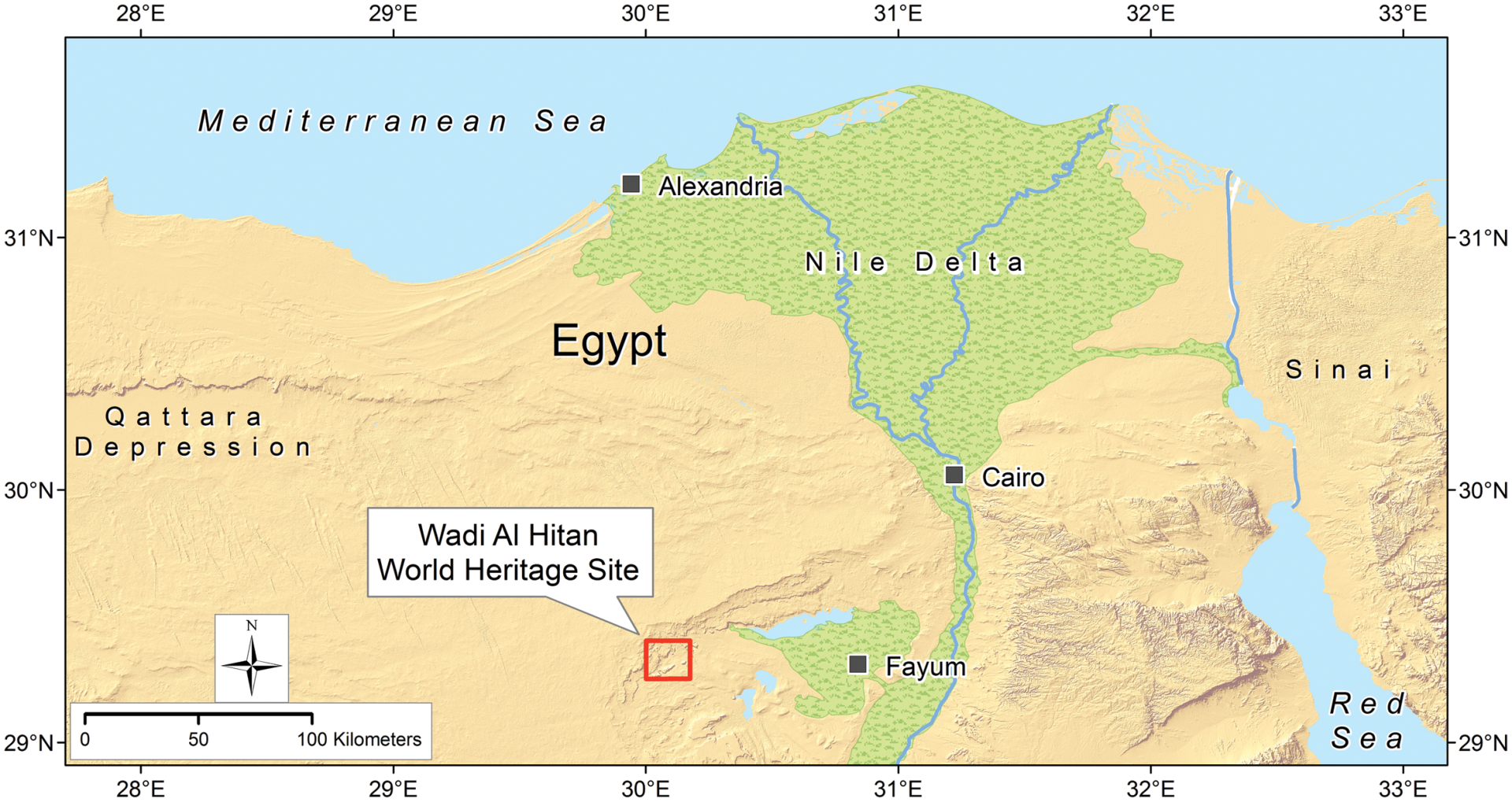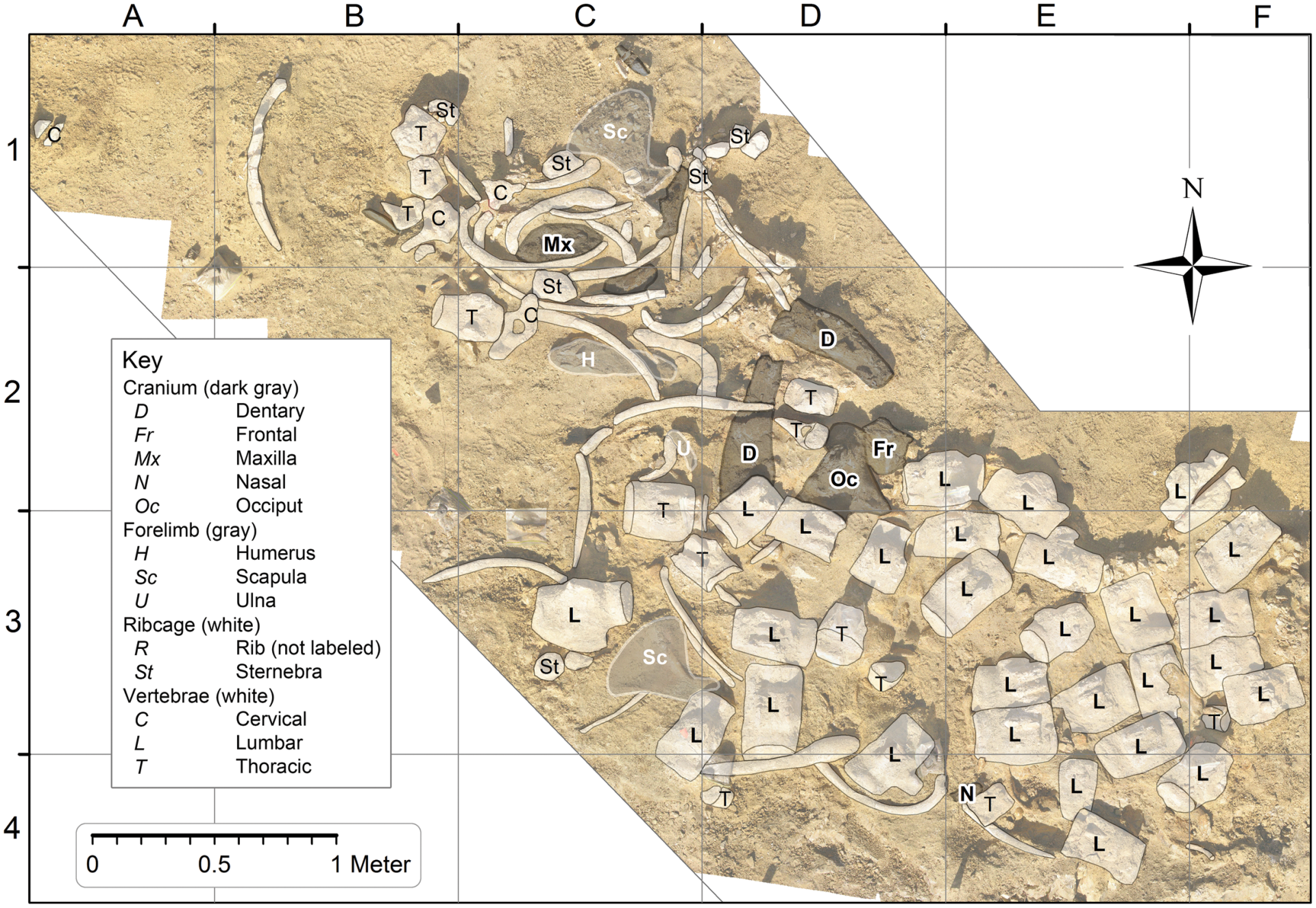Fishes and whales found in ancient whale species' stomach.
Scientists’ discovery of the bones of Basilosaurus, the ancestor of modern whales today, suggests that this cetacean predated on other whale species millions of years ago.
Killer whales ( Orcinus orca ) are known to predate on other whale species, working in co-ordinated pods to take down larger species like minke whale ( Balaenoptera acutorostrata ) and sperm whales ( Physeter macrocephalus )–but recently it has been found that they’re not the only species who preyed on their own kind throughout history. An excavation site known as "The Valley of Whales" in Egypt has revealed the bones of a whale twice the size of a killer whale, Basilosaurus isis, a species that also preyed on other whales during its lifetime in the warm Eocene epoch, 38 to 34 million years ago.
The authors of a study documenting their findings of the archaeocete (published in the journal PLOS ONE ), Dr Manja Voss of Berlin’s Natural History Museum and her colleagues, stated that the Basilosaurus was a top predator that “ ate its prey live.” With a name meaning ‘king lizard’ and a snake-like frame, this ancient whale species actually resonates more with modern whales than the reptile family, with the orca (killer whale) as its closest equivalent.
Initial assessment suggested that the jagged teeth of the Basilosaurus was used to prey on various sharks and fishes (e.g. Pycnodus mokattamensis ), but new analysis of bones found near Cairo had palaeontologists confirm that it also targeted larger prey, such other juvenile and subadult whales.During the first unearthing of bones in 2010, the 15-metre-long specimen had it's ribs and long vertebrae intermix with other bones, including fish bones and larger bones belonging to the Durodon atrox , another type of ancient whale species that is well documented. Bite marks were found on the Durodon bones, concentrated on its skull, revealing evidence that it had been the prey of the massive whale who delivered ‘killer blow instead of merely scavenging their remains’.
The Egyptian discoveries indicated that the site was potentially an area where a Durodon came to give birth, and also a hunting site for the Basilosaurus . In addition,there were several less common archaeocete genera and species found at the site, including three species of sirenians, two crocodilians, sea snakes, turtles, bony fishes, and many sharks.
Citation: Voss M, Antar MSM, Zalmout IS, Gingerich PD (2019) Stomach contents of the archaeocete Basilosaurus isis : Apex predator in oceans of the late Eocene. PLoS ONE 14(1): e0209021. https://doi.org/10.1371/journal.pone.0209021
SHARE THIS ARTICLE
















